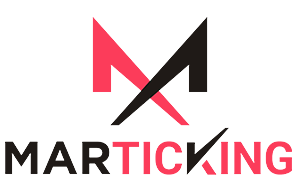The Beginner’s Guide to Google’s Pay-Per-Click Advertising
In the realm of digital marketing, Pay-Per-Click (PPC) advertising stands out as a powerful tool for businesses seeking to enhance their online visibility and drive targeted traffic to their websites. Among the plethora of PPC platforms available, Google’s PPC advertising remains one of the most prominent and widely used options. This beginner’s guide aims to elucidate the workings of Google’s PPC advertising, address its effectiveness, explore the role of PPC advertising agencies, and ultimately assist readers in determining its worth for their marketing endeavors.
how does pay-per-click advertising work:
At its core, Pay-Per-Click advertising operates on a straightforward principle: advertisers bid on specific keywords relevant to their target audience, and when users search for these keywords on Google, relevant ads are displayed. Crucially, advertisers are charged only when users click on their ads, hence the name “Pay-Per-Click.”
Google AdWords, now known as Google Ads, serves as the primary platform for PPC advertising on Google. It provides advertisers with a user-friendly interface to create, manage, and optimize their PPC campaigns. Through Google Ads, advertisers can specify their target audience based on factors such as location, demographics, interests, and device types.
Key Components of pay-per-click advertising google
- Keywords: Keywords form the foundation of PPC advertising. Advertisers select keywords relevant to their products or services, which trigger the display of their ads when users search for those terms on Google.
- Ad Copy: Compelling ad copy is essential for attracting clicks. Advertisers craft concise and engaging messages that entice users to click on their ads.
- Bid Strategy: Advertisers determine how much they are willing to pay for each click on their ads. Google employs an auction-based system where the bid amount, ad relevance, and expected click-through rate collectively influence ad placement.
- Quality Score: Google assigns a Quality Score to each keyword in a PPC campaign, based on factors such as ad relevance, expected click-through rate, and landing page experience. A higher Quality Score can result in better ad placement and lower costs per click.
is pay-per-click advertising worth it?
The effectiveness of PPC advertising on Google hinges on various factors, including the competitiveness of the chosen keywords, the quality of the ads and landing pages, and the relevance of the targeting parameters. For many businesses, PPC advertising offers significant benefits:
- Immediate Results: Unlike organic search engine optimization (SEO), which can take time to yield results, PPC advertising delivers immediate visibility and traffic to websites.
- Targeted Reach: Google’s sophisticated targeting options enable advertisers to reach highly specific segments of their target audience, maximizing the relevance and effectiveness of their ads.
- Measurable ROI: PPC advertising provides detailed metrics and insights, allowing advertisers to track the performance of their campaigns in real-time and adjust their strategies accordingly.
- Budget Control: Advertisers have full control over their PPC budgets, with the ability to set daily or campaign-level spending limits.
The Role of pay-per-click advertising agency
A Pay-Per-Click (PPC) advertising agency is a specialized firm that offers professional services to manage and optimize PPC campaigns on behalf of businesses. These agencies are equipped with the expertise and resources necessary to maximize the effectiveness of PPC advertising efforts on platforms like Google Ads.
PPC advertising agencies play a crucial role in helping businesses navigate the complexities of PPC campaigns, from keyword research and ad creation to bid management and performance tracking. By leveraging their knowledge and experience, these agencies help businesses achieve their advertising goals efficiently and cost-effectively.
Key services offered by PPC advertising agencies :
- Campaign Setup and Strategy Development: PPC agency assist businesses in setting up effective PPC campaigns tailored to their specific goals and target audience. This involves identifying relevant keywords, creating compelling ad copy, and developing a strategic approach to bidding and budget allocation.
- Keyword Research and Selection: PPC agencies conduct thorough keyword research to identify the most relevant and high-performing keywords for each campaign. This ensures that ads are displayed to users actively searching for products or services offered by the business.
- Ad Creation and Optimization: PPC agencies craft engaging ad copy and design compelling ad creatives that resonate with the target audience. They continuously monitor ad performance and make adjustments to optimize click-through rates, conversion rates, and overall campaign effectiveness.
- Bid Management and Budget Optimization: PPC agencies employ sophisticated bid management strategies to maximize ad visibility while minimizing costs. They monitor bidding trends, adjust bid amounts based on performance data, and optimize budgets to achieve the best possible return on investment (ROI).
Conclusion:
In conclusion, for Marticking, embracing Google’s Pay-Per-Click advertising presents a strategic avenue to boost online visibility, drive targeted traffic, and enhance overall marketing effectiveness. Understanding the fundamentals of PPC, assessing its worth, and considering collaboration with PPC agencies are pivotal steps in leveraging digital marketing to propel Marticking ‘s brand and sales forward. By tapping into the expertise of PPC professionals and implementing tailored strategies, Marticking can navigate the digital landscape with confidence, achieving tangible results and solidifying its position in the market.


